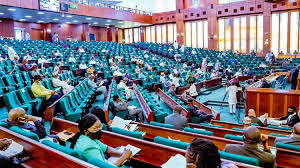The House of Representatives has taken action to address the growing issue of illegal human egg harvesting and commercialization in Nigeria. A motion moved by Hon. Kwamoti Bitrus La’ori called on the Federal Ministry of Health and the Ministry of Women Affairs to establish support systems for women who have donated eggs, helping them with any health problems or psychological effects that may arise.
The House also urged the Ministry of Health and the Ministry of Information to step up public awareness efforts, highlighting the risks and ethical concerns of egg donation to protect potential donors from exploitation.
In his motion, Hon. La’ori explained that the illegal commercialization of human eggs has become a serious issue globally, especially as demand for assisted reproductive technologies grows. He highlighted that Nigeria’s healthcare system, particularly in the area of reproductive health, is still developing, and this gap has allowed for exploitative practices to thrive.
La’ori expressed particular concern about young women, especially those from low-income backgrounds, being lured into donating eggs for financial gain without fully understanding the medical risks and ethical implications. He recalled an illegal egg harvesting scheme uncovered in Lagos in 2021, where women were promised money—ranging from N200,000 to N500,000 (about $120 to $300)—for donating eggs. This amount is far below international standards.
Many of these women were unaware of the potential health complications, such as ovarian hyperstimulation syndrome, and some experienced serious health issues following the procedure. In 2022, another illegal practice was discovered at a fertility clinic in Abuja, where women were falsely promised legitimate egg donation programs and their eggs were sold to foreign clients at inflated prices.
La’ori emphasized the need for clear laws and regulations to address these issues, as the current legal framework in Nigeria is insufficient to regulate egg donation and commercialization. He also pointed out that the country’s economic challenges have made young women more vulnerable to exploitation, with many seeking financial relief without fully understanding the dangers involved.
The House’s move calls for stronger regulations and better protection for women involved in egg donation.

